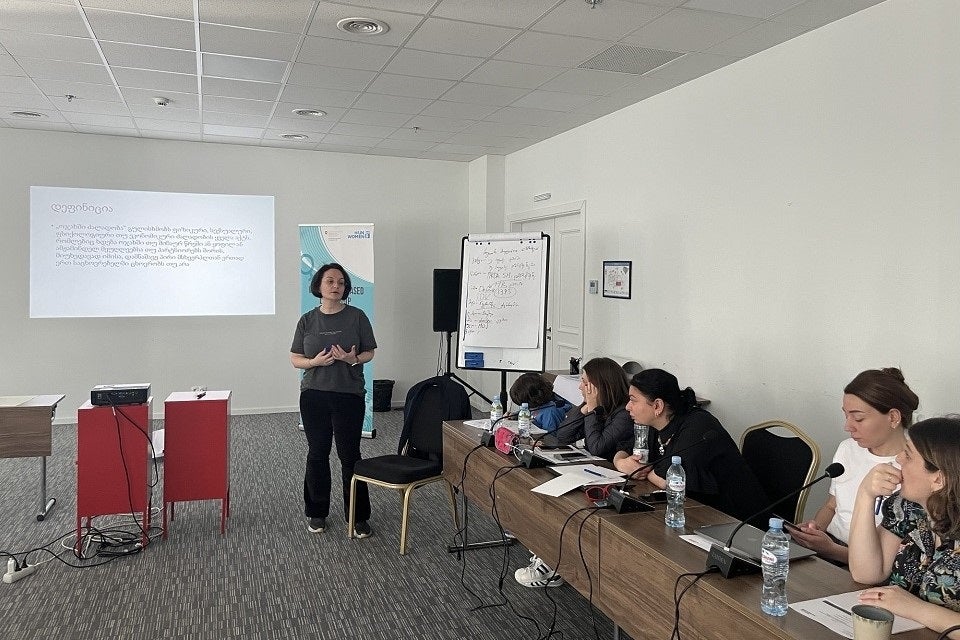UN Women supports policy to protect victims of domestic violence in public institutions
Date:

Global practice indicates that in the process of the prevention and elimination of violence against women and domestic violence, the existance of a clear policy on the part of employers, in particular one that takes into account the interests of victims and survivors of violence as much as possible, can play a special role. This is particularly true when the employer is part of the public sector, because its gender-sensitive approach can serve as an inspiring example for other sector organizations as well.
As part of the cooperation between UN Women and the Civil Service Bureau of Georgia, guidelines for the protection of victims of domestic violence were developed, which were approved by the Bureau in September 2023. The document regulates the issues of efficiently supporting victims of violence against women and domestic violence within the Bureau. It specifies the employer’s responsibilities in terms of reporting incidents of violence as well as developing an employee safety plan, which may include providing additional paid leave, transferring an employee to a remote work schedule, and taking prevention measures, such as organizing regular domestic violence training.
Considering the effectiveness of the guidelines for the protection of victims of domestic violence, UN Women is promoting the development and implementation of a similar document in other public agencies as well. This was the purpose of the training held on 18 and 19 April for the trainers of the Civil Service Bureau and human resources management professionals from other public institutions.
During the training, more than 20 participants reviewed in detail the Civil Service Bureau’s guidelines for the protection of victims of domestic violence, as well as international best practices of the policy for supporting and protecting victims of domestic violence. At the same time, the attendees deepened their knowledge about the importance of the policy itself, which will help them actively advocate for the development and implementation of a mechanism for the protection of victims of violence within their own agencies.
“The training was a wonderful opportunity to hear again about the forms of domestic violence and to talk about response measures,” said Maka Petriashvili, one of the training participants and the Deputy Head of the Human Resources Department of the Ministry of Defence of Georgia. “From the perspective of human resources management, we looked at what an organization can do to support victims or survivors of violence, [including] what this support would be like in terms of both authority and the required knowledge and skills. It was a pleasure to see the willingness of public agencies to become involved in the process of developing the support mechanism.”
UN Women will continue to collaborate with the public sector in terms of the implementation of the protection mechanisms for victims of violence.
The initiative has been implemented within the framework of the UN Women-implemented project “Women’s Increased Leadership for Democracy in Georgia” (WILD), supported by the Swiss Agency for Development and Cooperation (SDC).